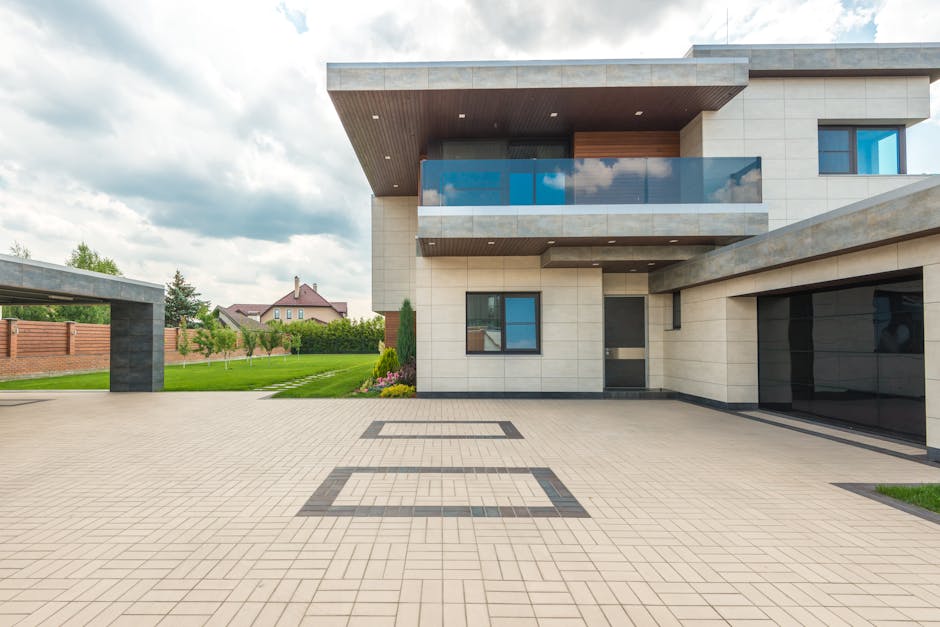An Essential Guide to Modular Home Resale Value Evaluation
Unlock Modular home resale value tips. Learn factors, upgrades, and myths to maximize your home's worth before selling.
Understanding the Truth About Modular Home Value
Modular home resale value is comparable to traditional stick-built homes and can appreciate over time, contrary to common misconceptions.
Here’s what you need to know about modular home value:
| Factor | Impact on Resale Value |
|---|---|
| Permanent foundation | Significantly increases value |
| Land ownership | Primary driver of appreciation |
| Construction quality | Factory-built can mean fewer defects |
| Energy efficiency | Newer models offer better utility savings |
| Location | Still the #1 factor (just like traditional homes) |
When Sarah first considered purchasing a modular home in Texas, her biggest concern was whether it would be a smart investment. Like many homebuyers, she worried about potential depreciation and resale challenges.
The truth is that modular homes—which are built in sections in a climate-controlled factory and then assembled on a permanent foundation at the building site—often hold their value just as well as traditional homes. According to research from the Manufactured Housing Institute, modular homes built on owned land typically appreciate at rates similar to neighboring site-built homes.
What makes modular homes different from manufactured or mobile homes? Modular homes must meet the same local and state building codes as site-built homes, unlike manufactured homes that follow federal HUD codes. This distinction matters tremendously for resale value.
The cost advantage is compelling: modular construction typically saves 10-35% compared to traditional building methods, while delivering a home in a fraction of the time. These savings don’t come from inferior materials but from manufacturing efficiencies and reduced weather delays.
For budget-conscious buyers in today’s housing market, modular homes represent an increasingly attractive path to homeownership that doesn’t sacrifice future resale potential.
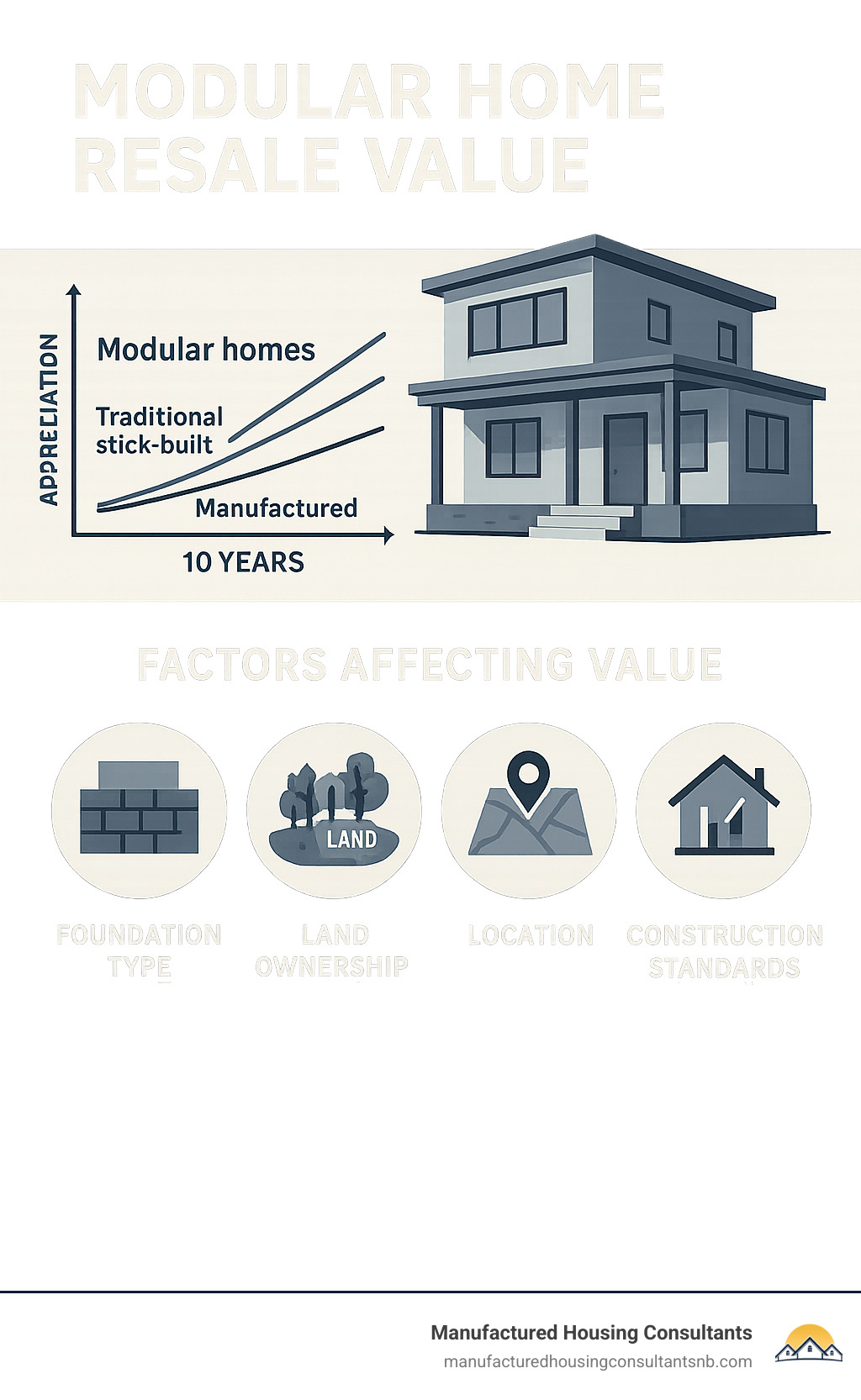
Modular home resale value terms to know:
Understanding Modular Home Resale Value
The market for modular homes has grown by leaps and bounds in recent years. As traditional housing costs continue to climb and construction workers become harder to find, modular building has stepped up as a smart solution that doesn’t cut corners on quality or investment potential.
You might be surprised to learn that modular homes often hold their value remarkably well. As one recent industry report put it: “A modular home has a better value compared to a stick-built house than you might think.” This value comes from several key advantages that modern modular construction offers:
First, these homes are built in climate-controlled factories where rain, snow, and extreme temperatures can’t delay construction or damage materials. This controlled environment ensures consistent quality that homebuyers increasingly recognize and value.
Second, most modular homes can be move-in ready in just 3-4 months, compared to nearly 11 months for traditional construction. This time savings matters not just for convenience but for your wallet too.
Third, the cost savings are substantial. Modular home resale value benefits from lower initial costs—typically $80-$160 per square foot versus $150+ for stick-built homes—without sacrificing quality.
Finally, the precision of factory construction often creates better-sealed, more energy-efficient homes with tighter seams and superior insulation.
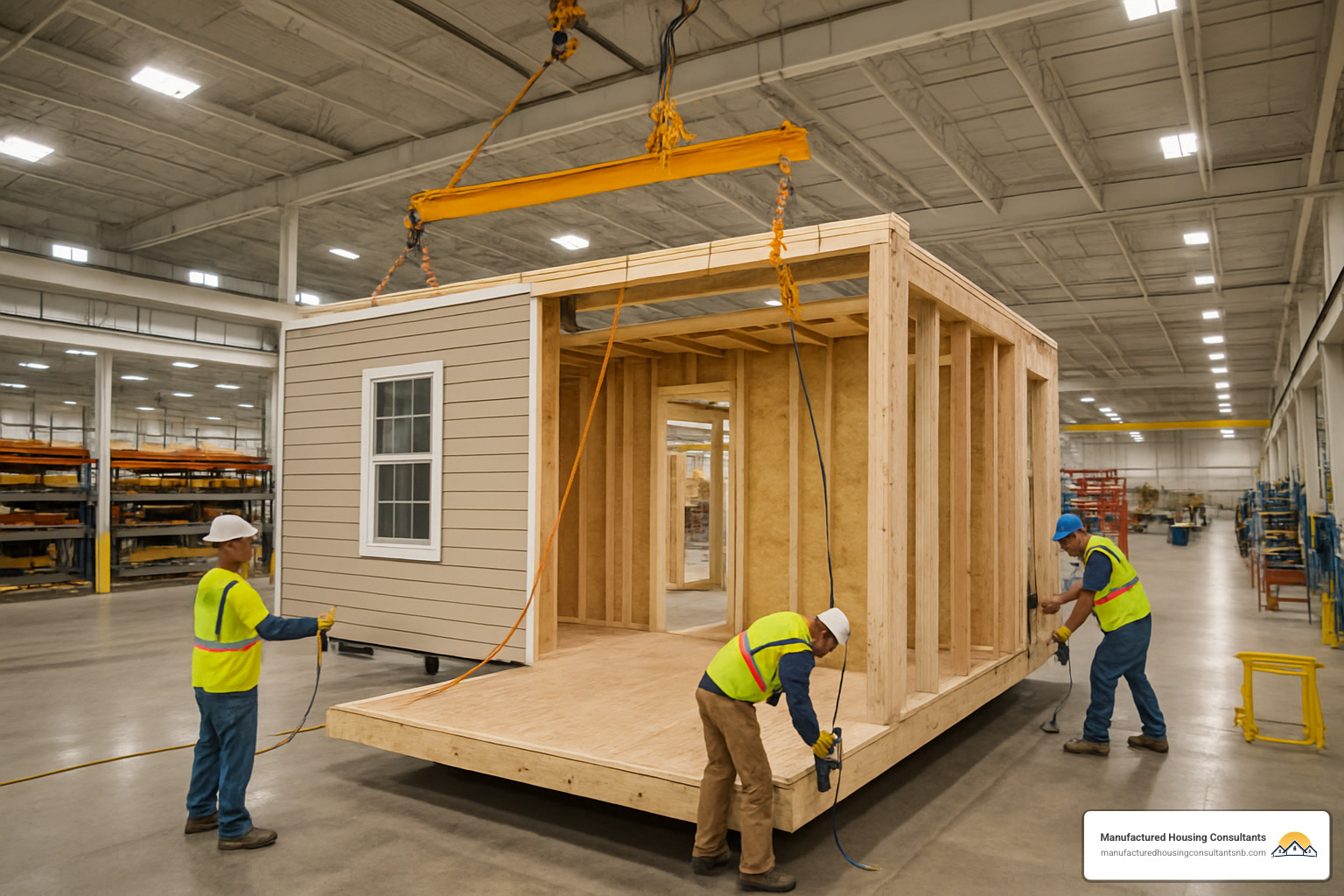
Research backs up these benefits. A 2017 study from the Terner Center for Housing Innovation at UC Berkeley estimated construction savings of at least 20% for modular builds compared to traditional site-built homes. These savings don’t come from using cheaper materials but from manufacturing efficiencies, bulk purchasing power, and the ability to build the foundation while simultaneously constructing the home modules.
Banks and lenders have taken notice too. Most now treat modular homes exactly like traditional homes when it comes to mortgages. This financing parity plays a crucial role in maintaining resale value, as it ensures future buyers won’t face barriers to obtaining standard home loans.
For homebuyers in Texas, where housing demand continues to outpace supply, modular homes offer a path to homeownership in desirable neighborhoods at a more accessible price point—without sacrificing future resale potential.
Key Factors That Shape Modular Home Resale Value
Just like traditional homes, several critical factors determine how well your modular home will hold its value over time:
Foundation Type matters enormously for modular home resale value. Homes placed on permanent foundations—whether concrete slab, crawl space, or full basement—are treated as real property and appreciate similarly to stick-built homes. As one industry expert explained it: “If the home is a permanent improvement on the land and never moves, the home’s valuation becomes the same as any other home.”
Land Ownership plays a crucial role in appreciation. When you own the land beneath your modular home, you’re positioned for much better long-term value. Federal Housing Finance Agency data suggests that manufactured homes (including well-built modular homes) on owned land may now be appreciating at rates approaching traditional homes. This happens largely because land typically appreciates over time, boosting your overall property value.
Location Quality remains the golden rule in real estate, modular or otherwise. A modular home in a sought-after school district or growing neighborhood will gain value faster than an identical home in a less desirable area. Industry research shows that suburban properties attract 50% of U.S. homebuyers compared to just 13% for rural properties—a factor worth considering when choosing where to place your modular home.
Construction Quality and Customization in today’s modular homes can be truly impressive. Many modern modulars are “so customized and boast such impressive upgrades that it can be hard to tell they were even built off-site,” according to industry observers. This quality equivalence helps ensure comparable resale value to traditional construction.
Energy Efficiency and Smart Features increasingly influence home values. Newer modular homes often feature superior insulation (R38 roof, R19 floor, R21 walls), Energy Star appliances, and smart home technology. As energy costs rise, these efficiency features become even more valuable to future buyers.
| Home Type | Building Code | Foundation | Financing | Typical Appreciation |
|---|---|---|---|---|
| Modular | IRC/Local Codes | Permanent | Traditional Mortgage | Similar to Stick-Built |
| Stick-Built | IRC/Local Codes | Permanent | Traditional Mortgage | Market Standard |
| Manufactured (Post-1976) | HUD Code | Optional Permanent | Chattel or Traditional | Lower Unless on Owned Land |
| Mobile (Pre-1976) | Pre-HUD Standards | Usually Non-Permanent | Chattel Loan | Typically Depreciates |
Modular Home Resale Value vs Stick-Built Homes
When comparing modular and traditional homes for resale value, several interesting factors come into play:
The cost advantage and equity gain of modular construction can give you a head start financially. Since modular homes typically cost 10-20% less to build, you may have instant equity once the home is complete. As one industry expert explained: “Modular homes often appreciate at a similar or higher rate than stick-built homes because they cost less to build upfront, yielding instant equity once market value is compared to build cost.”
The construction timeline impact shouldn’t be overlooked either. With modular homes complete in 3-4 months versus nearly 11 months for traditional construction, you can move in sooner and potentially begin building equity earlier—a real advantage in fast-growing markets like those in Texas.
Quality control standards for modular homes might actually exceed local requirements. Many modular manufacturers build to meet the strictest combined electrical, structural, and plumbing codes from several states rather than just meeting minimum local standards. One modular homeowner shared: “We were initially skeptical about quality, but our modular home has weathered two major storms better than our neighbor’s traditional home. The factory construction actually resulted in stronger joints and better insulation.”
Lender and appraiser treatment has evolved significantly. Financial institutions increasingly recognize that well-built modular homes are equivalent to stick-built homes in terms of value and durability. “Financing and insurance options for modular homes have become increasingly comparable to those for traditional homes, as lenders and insurers grow more familiar with modular construction,” notes one industry source.
Modular vs Manufactured vs Mobile: Codes & Foundations
Understanding the regulatory differences between housing types helps explain their different resale potential:
Modular Homes (IRC Code) follow the same International Residential Code and local building codes as traditional homes. They’re permanently installed on a foundation, treated as real property for financing and taxes, and HUD standards don’t apply to them. This regulatory parity helps maintain their value.
Manufactured Homes (HUD Code) are built to federal standards established after June 15, 1976. They’re constructed on a permanent steel chassis and can be placed on permanent foundations, though it’s not required. They may be financed as either real property or personal property, depending on the installation.
Mobile Homes (Pre-1976) were built before HUD Code implementation and often have lower construction standards. They typically depreciate like vehicles and are usually financed through chattel loans as personal property.
These distinctions significantly impact zoning, financing options, and ultimately resale value. A modular home on a permanent foundation in a residential neighborhood will typically hold value similarly to neighboring stick-built homes, while manufactured homes on leased land or mobile homes generally don’t fare as well over time.
Durability, Longevity & Energy Efficiency
Modern modular homes are built to last, with many manufacturers offering 50-year warranties on construction. This durability directly impacts modular home resale value by ensuring the structure maintains its integrity for decades.
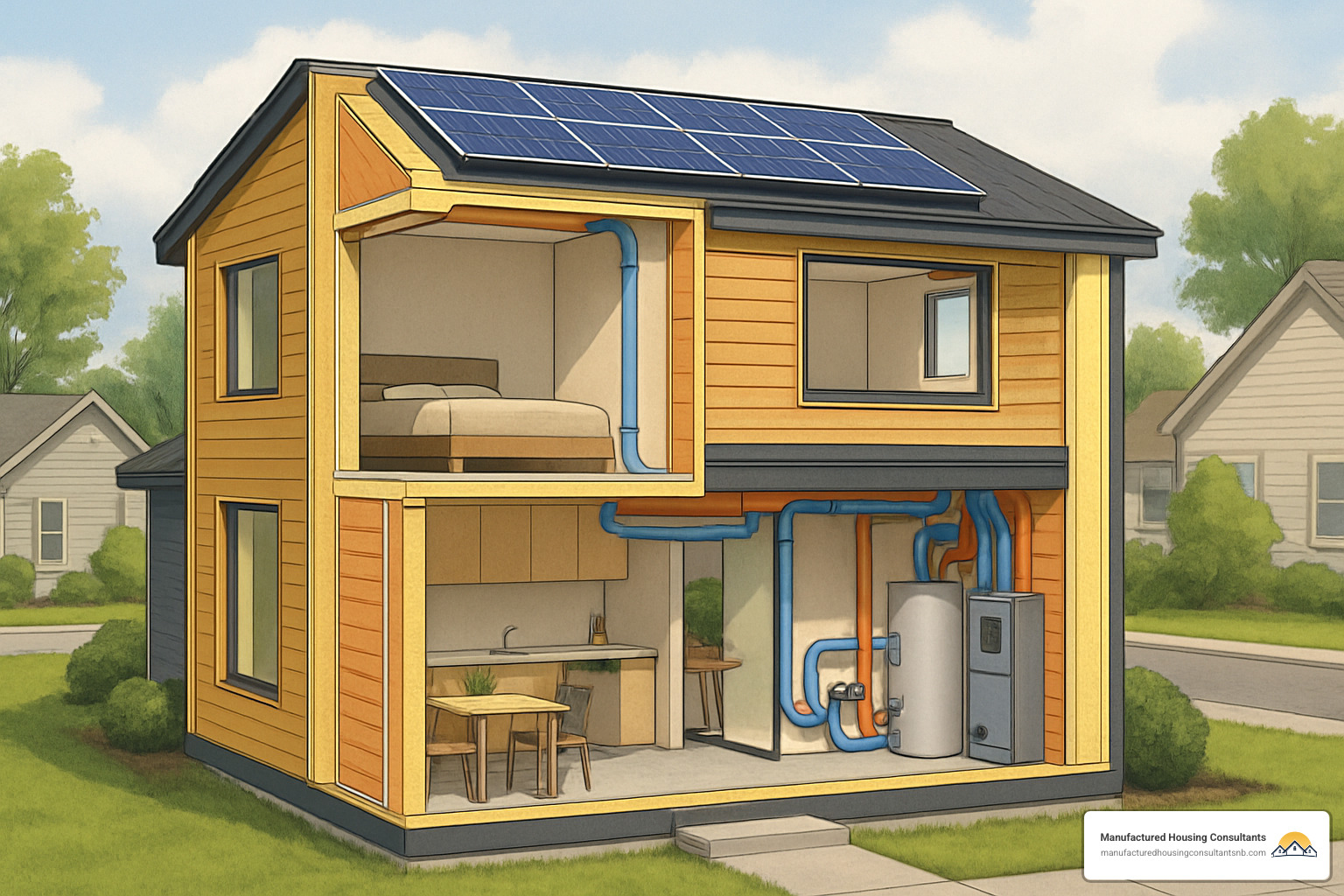
The durability advantages start with superior structural elements. Many modular homes use 2×6 exterior wall studs (versus 2×4 in typical site-built homes) and additional fasteners to withstand transportation stress. These stronger building components often result in a more solid-feeling home that stands up better to extreme weather.
Energy-efficient design is another hallmark of modern modular construction. Factory precision creates tighter building envelopes with fewer air leaks. As one industry expert noted: “Modular homes often have tighter seams and better energy efficiency because they must endure transport from the factory.” These construction methods mean your heating and cooling stay where they belong—inside your home.
Climate-controlled construction prevents weather damage to materials during building, reducing the risk of mold, warping, and other moisture-related problems that can plague site-built homes. When materials stay dry from factory to final installation, the home starts its life without hidden moisture issues.
Multi-point inspections occur at multiple stages in the factory, often resulting in fewer defects than homes built entirely on-site. Some modular builders have quality control processes that exceed local building inspection requirements.
A homeowner in New Braunfels, Texas shared a common experience: “Our utility bills are consistently lower than our neighbors with similar-sized traditional homes. The factory-built tight envelope makes a noticeable difference in our hot summers.”
These efficiency features are increasingly valued by homebuyers, potentially boosting resale value as energy costs rise and environmental concerns grow.
Common Misconceptions About Modular Home Resale Value
Despite growing evidence to the contrary, several stubborn myths continue to cloud public perception about modular home resale value:
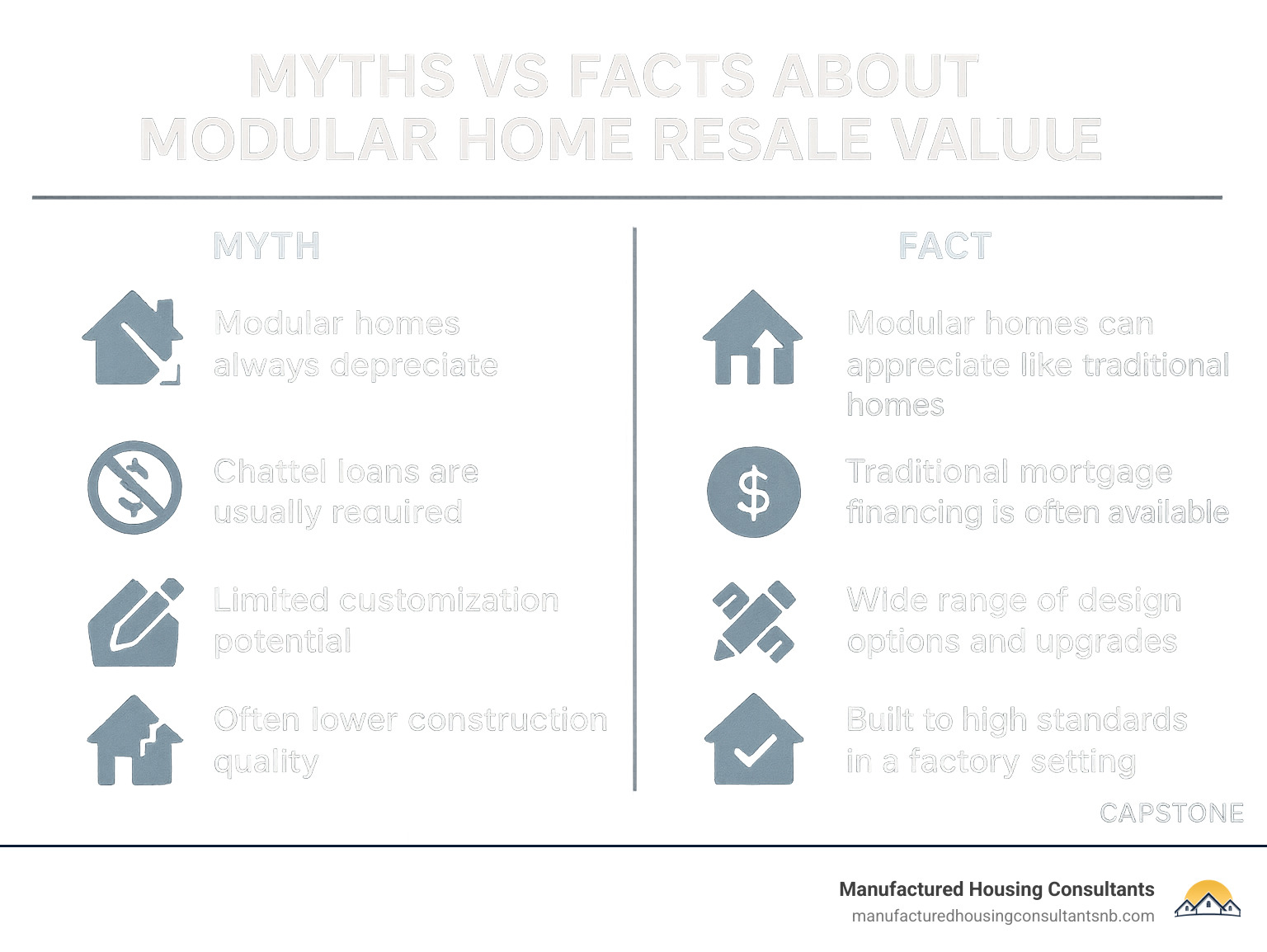
Myth #1: Modular homes depreciate like mobile homes. The reality is that when built on permanent foundations on owned land, modular homes typically appreciate similarly to traditional homes. Federal Housing Finance Agency data shows that properly sited manufactured homes (including well-built modular homes) may appreciate at rates approaching traditional homes.
Myth #2: All modular homes look identical. Today’s modular homes offer extensive customization options. As one industry professional stated: “Modular homes are so customized and boast such impressive upgrades that it can be hard to tell they were even built off-site.” From craftsman to contemporary, modular designs span the full spectrum of architectural styles.
Myth #3: Financing is difficult for modular homes. Financial institutions treat properly installed modular homes just like traditional homes. They qualify for conventional mortgages, FHA loans, VA loans, and other standard financing options with similar terms and interest rates.
Myth #4: Insurance costs more for modular homes. Insurance rates for modular homes are typically comparable to stick-built homes of similar value and location. Some insurers even offer discounts based on the consistent quality standards of factory construction and improved durability features.
Myth #5: Modular homes aren’t built to last. Many modular homes come with 50-year warranties and are constructed with materials and methods identical to or exceeding those used in traditional construction. The controlled factory environment often results in better quality control than possible at outdoor construction sites.
As public perception continues to evolve and more buyers experience the quality of modern modular construction firsthand, these misconceptions are gradually fading—a trend that bodes well for future modular home resale value.
Maximizing Your Modular Home’s Future Sale Price
Smart homeowners don’t just live in their modular homes—they actively build value in them. With some strategic planning, you can ensure your home doesn’t just maintain its worth but actually increases in value over time.
I’ve always told my clients that “you need to become the main character in your home’s value story,” not just a passive observer. This is especially true in competitive markets like ours here in Texas, where buyer expectations seem to climb higher every year.
Here at Manufactured Housing Consultants, we’ve watched countless families in New Braunfels transform their modular homes into genuine wealth-building assets. The secret isn’t complicated—it’s about making smart improvements, maintaining your property diligently, and understanding the local market dynamics.
Many of our happiest customers have used the equity from their modular homes to move up to larger properties or create financial security for retirement. Your modular home can do the same for you with some intentional planning and care.
Upgrades That Deliver ROI
Not all home improvements are created equal when it comes to boosting modular home resale value. After years in this business, I’ve seen which upgrades truly move the needle on sale prices.
The beauty of modular construction is its expandability. Adding a whole new module for an extra bedroom or expanded living area typically returns 80-90% of your investment when you sell. One of our clients in New Braunfels added a modular sunroom for $15,000 and ended up selling their home for $25,000 more than comparable properties—a fantastic return!
Kitchen updates are another winner, with modern countertops, cabinets, and appliances typically recouping 70-80% of costs. Bathrooms aren’t far behind, with updated fixtures and vanities returning about 60-70% of what you spend.
Outdoor living spaces are particularly valuable in our Texas climate. A well-designed deck costing $3,000-$7,000 can return around 85% of your investment while making your home more enjoyable in the meantime.
Energy efficiency improvements really shine in our hot Texas summers. Better insulation, high-efficiency HVAC systems, and even solar panels can command premium prices as buyers increasingly focus on monthly operating costs.
Smart home technology and garage additions round out the list of high-return improvements. Just remember to keep your upgrades in line with neighborhood standards—going too fancy for your area rarely pays off at sale time.
Maintenance & Record-Keeping For Top Dollar
The most affordable way to protect your modular home resale value is through consistent maintenance. A well-maintained home not only fetches a higher price but typically sells much faster too.
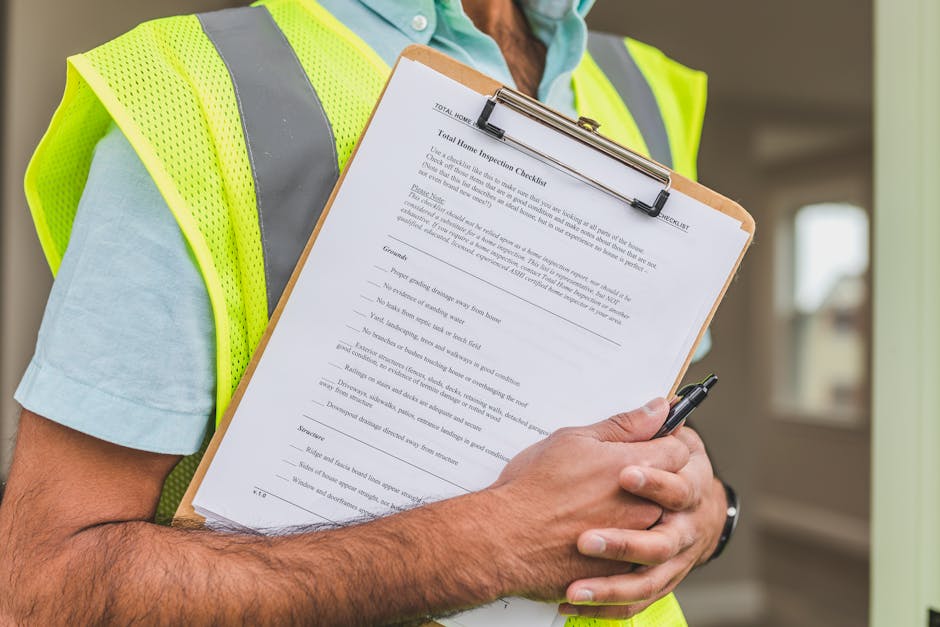
Foundation checks should top your maintenance list. Since modular homes are assembled on-site, it’s important to inspect annually for any signs of settling or water issues. Similarly, you’ll want to periodically check the seams where modules connect for any separation.
Your home’s exterior is its calling card. Regular painting, siding maintenance, and thoughtful landscaping dramatically impact how buyers perceive your property’s value. One homeowner told me, “The weekend I spent refreshing my landscaping was the best $300 I ever invested—buyers couldn’t stop commenting on the curb appeal.”
Don’t forget about your HVAC system either. Annual professional maintenance extends its lifespan and efficiency—important selling points in our Texas heat.
Almost as important as doing the maintenance is documenting it. Create a simple digital folder with:
- All warranty documents from your manufacturer and contractors
- Maintenance logs showing service visits and repairs
- Receipts for improvements (especially structural or major systems)
- Copies of professional inspection reports
- Energy bills demonstrating efficiency
As one successful seller shared with me, “Having complete maintenance records gave buyers confidence. Our home sold in half the time of similar properties because buyers could see we’d taken good care of everything.”
Smart Financing, Appraisals & Listings
Understanding the financial side of selling a modular home can make the difference between an average sale and a great one. The good news is that financing options for modular homes have dramatically expanded in recent years.
Well-built modular homes on permanent foundations qualify for all the same financing options as traditional homes—conventional mortgages, FHA loans, VA loans, and USDA loans. This expanded financing accessibility opens your potential buyer pool significantly.
If you’ve made substantial improvements, consider refinancing before selling. A new appraisal can establish a higher value on paper, which helps set buyer expectations appropriately.
Speaking of appraisals, they’re an area where modular homeowners need to be proactive. When the appraiser visits:
- Provide information on recent sales of similar modular homes
- Point out quality features that exceed code requirements
- Show documentation for all improvements
- Request an appraiser familiar with modular construction if possible
The language you use when listing your home matters enormously. I always advise clients to use terms like “systems-built” or “factory-built” rather than “manufactured” to avoid confusion with mobile homes. Highlight quality construction, energy efficiency, and custom features.
Professional photography is non-negotiable in today’s digital marketplace. As one New Braunfels seller told me, “The professional photos made our modular home look like a custom build. We had more showings in the first week than our neighbor had in a month.”
Be upfront about the modular construction while emphasizing benefits like superior quality control and energy efficiency. Educated buyers actually see modular construction as an advantage once they understand it.
For more details about financing options for your potential buyers, check out our detailed guide on modular home financing.
Regional Market Timing & Demographics
Texas presents some unique opportunities for modular home sellers. Understanding our regional market can help you time your sale perfectly for maximum return.
Our state continues to see remarkable population growth, creating sustained housing demand—especially in the San Antonio-New Braunfels corridor where we’re based. As traditional home prices climb, well-maintained modular homes offer an increasingly attractive alternative for budget-conscious buyers.
School districts matter enormously in our market. Homes in top-rated districts consistently command 20-30% higher prices, regardless of construction type. One client told me, “I bought in a good school district even though I don’t have kids, and it paid off with a 15% higher sale price five years later.”
Location preferences have shifted somewhat in recent years. About 50% of Texas homebuyers now prefer suburban locations compared to just 13% seeking rural properties. This urban-suburban tilt is worth considering when evaluating your home’s marketability.
Understanding who typically buys modular homes helps you position your property effectively. The most common buyers include:
- First-time homebuyers attracted by affordability and modern features
- Downsizing retirees who appreciate single-level living and energy efficiency
- Eco-conscious buyers who value reduced waste and energy-efficient construction
- Investment property buyers recognizing the value proposition for rental returns
In Texas, spring (March-May) typically brings the highest prices and fastest sales. But local factors can override seasonal patterns. A client who sold their modular home in New Braunfels shared: “We timed our sale to coincide with the announcement of a new tech company campus nearby. The increased demand helped us sell for 15% above our initial estimate.”
For more information about affordable modular options in Texas, visit our guide to affordable modular homes in Texas.
Step-By-Step Selling Roadmap
When it’s time to sell your modular home, following a structured approach will help you achieve the best possible outcome. Here’s the roadmap we’ve used to help dozens of successful sellers throughout Texas:
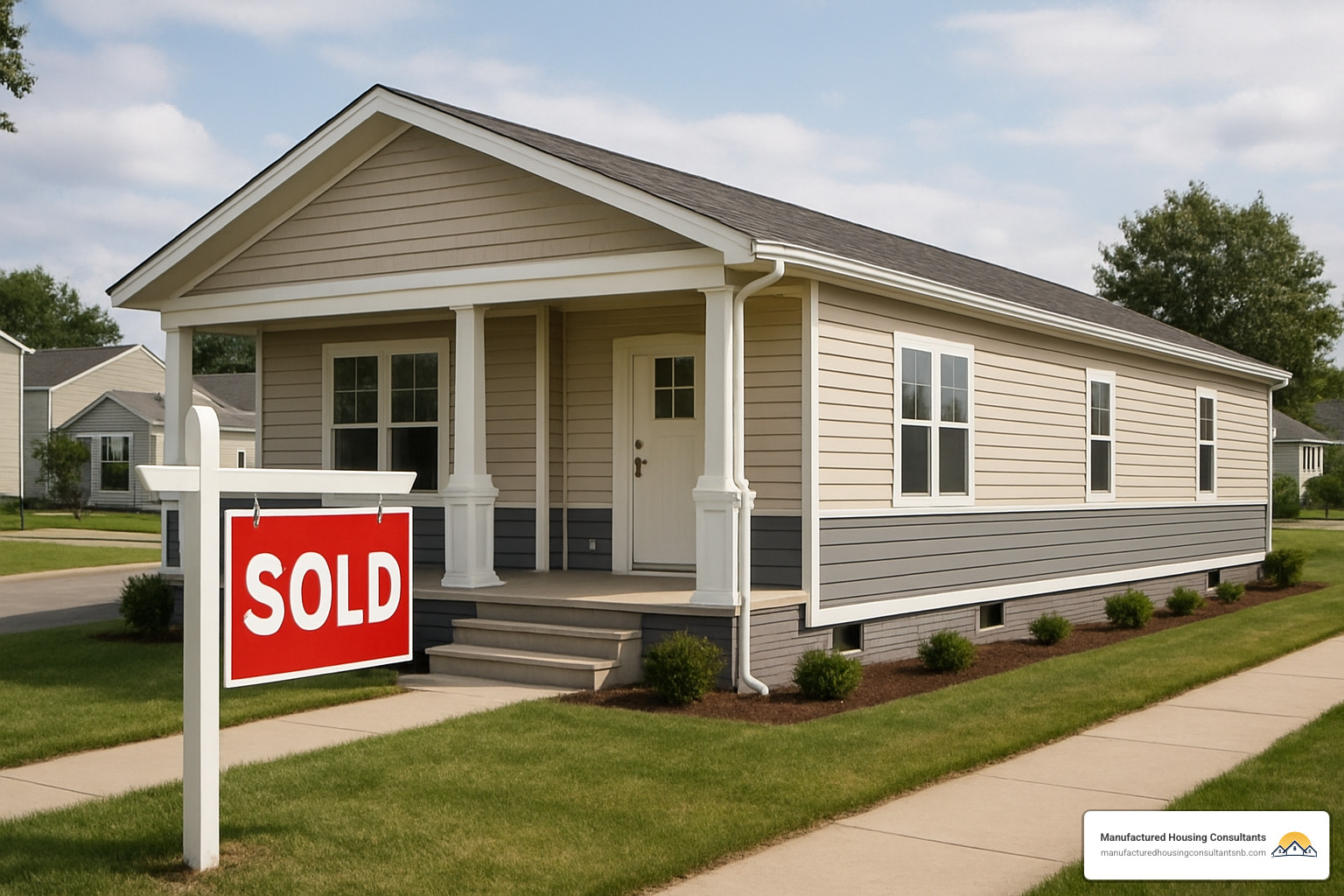
Start with proper valuation and pricing about 3-4 weeks before listing. Get a Comparative Market Analysis from an agent who understands modular homes—not all agents do! Consider a professional appraisal to establish a baseline value, and research recent sales of similar modular homes in your area. Setting a realistic price that reflects your home’s condition and the local market is crucial for attracting serious buyers.
Next comes preparation and presentation, ideally 2-3 weeks before listing. This is when you’ll complete minor repairs, deep clean everything, and boost curb appeal with fresh landscaping. Consider professional staging to showcase your home’s potential. Don’t forget to gather all maintenance records, warranties, and upgrade documentation to share with potential buyers.
Your marketing strategy should come together 1-2 weeks before listing. Hire a professional photographer—this is not the place to cut corners! Develop compelling listing descriptions that highlight quality construction and create virtual tours to expand your reach. Prepare simple fact sheets about modular construction benefits to educate potential buyers.
During the active listing period, ensure your home is easily accessible for showings and be prepared to educate buyers about modular construction advantages. Consider pre-listing inspections to address concerns proactively. When evaluating offers, look beyond just the price to contingencies and financing terms.
After accepting an offer, address any inspection issues promptly and ensure all modular-specific documentation is available for the buyer’s lender. Prepare for the appraisal with comparable sales information and complete any agreed-upon repairs before closing.
One of our successful sellers shared this wisdom: “Don’t just accept the first offer—we had three buyers compete after we highlighted our home’s energy efficiency and superior construction. The final sale price was 8% above our asking price.”
At Manufactured Housing Consultants, we’ve guided countless clients through this process in the New Braunfels area, ensuring they receive fair value for their modular homes. Your modular home represents both a comfortable living space and a sound investment—with the right approach, you can maximize its value when it’s time to sell.
Conclusion & Next Steps
If there’s one thing we’ve learned about modular home resale value throughout this guide, it’s that these homes follow many of the same rules as traditional housing. Location still reigns supreme, condition matters enormously, and smart upgrades can significantly boost your return. The wonderful news for modular homeowners? When properly maintained and situated on permanent foundations on land you own, these homes typically appreciate right alongside their stick-built neighbors.
Think of your modular home as an investment that responds to your care and attention. The foundation you choose at the beginning of your journey sets the stage for everything that follows. A permanent foundation isn’t just structural support—it’s financial support for your home’s future value.
“The documentation we kept over the years made all the difference when we sold,” shared Maria, a recent client in New Braunfels. “Potential buyers could see exactly how we’d cared for the home and what improvements we’d made.” This simple practice of keeping records demonstrates your commitment to maintaining your home’s condition and can significantly impact buyer confidence.
When it comes to improvements, not all renovations are created equal. Kitchens and bathrooms consistently deliver the strongest returns, while energy efficiency upgrades increasingly appeal to eco-conscious and budget-minded buyers alike. Your local market conditions should guide your improvement strategy—what works in downtown New Braunfels might differ from what appeals to buyers in rural Texas communities.
Working with professionals who truly understand modular construction makes all the difference when it’s time to sell. At Manufactured Housing Consultants, we’ve guided countless homeowners through this process, helping them steer everything from appraisals to marketing strategies that highlight the genuine quality of their modular homes.
The modular housing industry continues to innovate at an impressive pace. New designs, materials, and construction techniques emerge regularly, making today’s modular homes more sophisticated, efficient, and valuable than ever before. As more homebuyers experience these advancements firsthand, public perception continues to shift, recognizing modular homes for what they truly are—quality homes that offer remarkable affordability without sacrificing investment potential.
If you’re considering exploring modular home options for yourself, we invite you to browse our available selection or simply reach out to our team. We’re passionate about helping families throughout New Braunfels and beyond find affordable, quality housing solutions that meet both their immediate needs and long-term financial goals.
Your modular home journey—whether you’re just beginning or preparing to sell—deserves thoughtful guidance from people who understand both the product and the market. With proper research, ongoing care, and strategic improvements guided by local expertise, your modular home can provide years of comfortable living while building value for your future.

